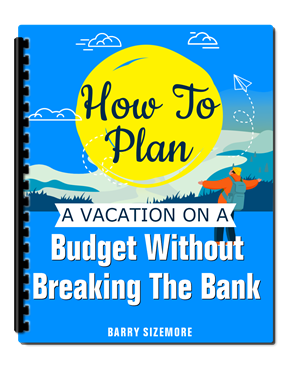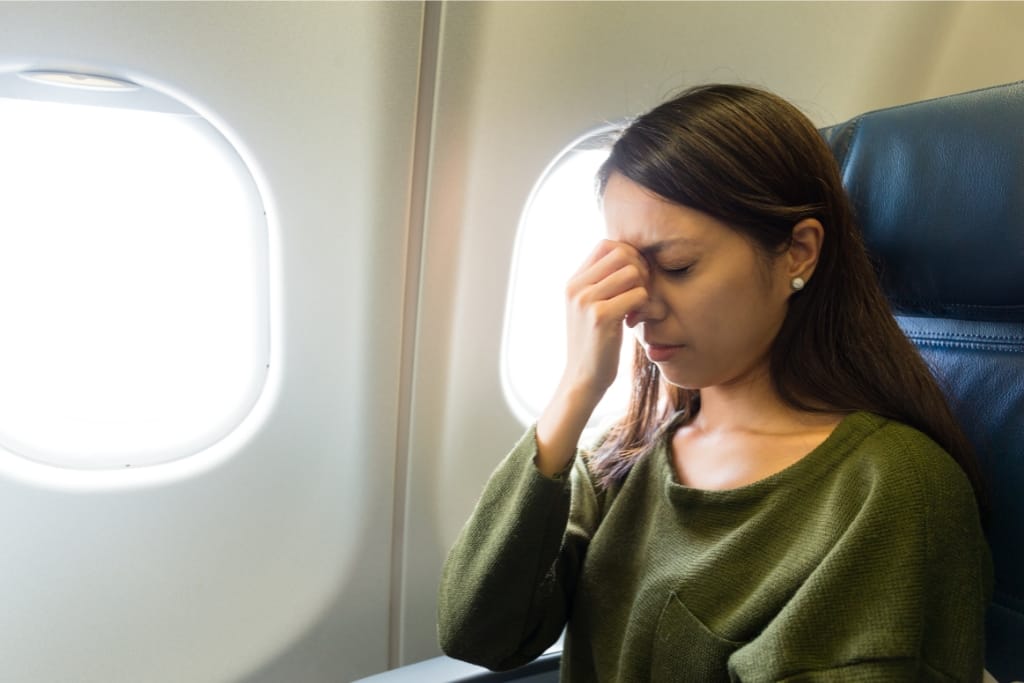The fear of flying can feel overwhelming, holding you back from opportunities to travel, connect with loved ones, or experience the world.
However, overcoming this fear is entirely possible with the right approach and mindset.
By understanding what triggers your anxiety and learning simple yet effective techniques to manage it, you can take control and regain your confidence in the air.
Keep reading to uncover practical strategies that will help you leave your fear of flying behind for good.
1)) Understand The Root Cause Of Your Fear
Understanding the root cause of your fear is a crucial first step toward overcoming it.
For many, the fear of flying stems from a combination of factors, such as a fear of heights, lack of control, or traumatic past experiences.
Identifying your specific triggers allows you to address them directly and replace irrational fears with logical explanations.
Whether it’s turbulence, takeoff, or simply the idea of being in an enclosed space, pinpointing what unsettles you can help you develop coping strategies tailored to your needs.
By acknowledging and analyzing the source of your anxiety, you set the foundation for progress and pave the way to feeling more confident in the skies.
2)) Educate Yourself About How Flying Works
Educating yourself about how flying works can significantly reduce the fear of the unknown and enhance your comfort level.
Planes are meticulously engineered to withstand extreme conditions, and their safety features are rigorously tested before they even take flight.
Understanding concepts like how turbulence is a normal and safe part of air travel, the redundancy of systems onboard, and the expertise of trained pilots can demystify the experience.
Learning about these aspects through trusted resources or professionals allows you to replace fear with knowledge and confidence.
The more you understand the mechanics and safety measures involved in air travel, the less intimidating the experience becomes.
3)) Practice Relaxation Techniques Before And During Flights
Practicing relaxation techniques can be a powerful way to keep your mind and body calm before and during a flight.
Breathing exercises, for instance, help regulate your heart rate and reduce feelings of panic by bringing your attention to slow, deliberate inhales and exhales.
Progressive muscle relaxation, where you tense and release each muscle group systematically, can help ease physical tension associated with anxiety.
Meditation or visualization techniques, like imagining yourself in a serene environment, can also provide a mental escape from distressing thoughts.
Incorporating these strategies into your routine ensures you approach flying with a greater sense of control and calm, making the experience more manageable and less daunting.
4)) Gradually Expose Yourself To Air Travel
Gradually exposing yourself to air travel is a highly effective way to reduce your fear over time.
Start with small steps, such as visiting an airport to familiarize yourself with the environment or watching planes take off and land from a safe distance.
As your confidence builds, consider booking a short, non-stop flight to ease into the experience without overwhelming yourself.
Each exposure helps desensitize you to the aspects of flying that trigger your anxiety, allowing you to build a sense of normalcy around air travel.
With consistency and patience, this gradual approach can help you transform your fear into a manageable part of your life and open the door to greater travel opportunities.
5)) Seek Professional Help Or Therapy
Seeking professional help or therapy can be a game-changer for addressing your fear of flying.
Therapists trained in areas such as cognitive-behavioral therapy (CBT) can help you identify and reframe negative thought patterns that fuel your anxiety.
Exposure therapy, where you gradually become accustomed to the idea of flying through simulated scenarios, provides controlled, step-by-step assistance.
Specialized courses for fearful flyers, often led by aviation experts and psychologists, offer both practical knowledge and emotional support in a group setting.
Turning to professionals equips you with tools, guidance, and encouragement tailored to your specific needs, enabling you to overcome your fear and approach flying with newfound confidence.
6)) Use Distraction Strategies During Flights
Using distraction strategies during flights can effectively shift your focus away from anxiety-inducing thoughts.
Engaging in activities such as listening to your favorite playlist, watching an entertaining movie, or reading an engrossing book can occupy your mind and make time pass more quickly.
Crossword puzzles, games, or sketching can provide a hands-on way to channel nervous energy into something enjoyable.
Bringing along comfort items, like noise-canceling headphones or a cozy travel pillow, can also help create a more relaxing environment.
By keeping yourself preoccupied with positive and engaging activities, you reduce the opportunity for fear to take hold, promoting a more pleasant flying experience.
7)) Avoid Stimulants Leading Up To Your Flight
Avoiding stimulants leading up to your flight can greatly reduce your anxiety and help you feel more at ease.
Substances like caffeine, found in coffee, tea, and energy drinks, can heighten feelings of nervousness and increase your heart rate, exacerbating pre-flight jitters.
Similarly, nicotine from smoking or vaping may provide short-term relief but often leads to heightened stress once its effects wear off.
Instead, opt for calming alternatives such as herbal teas or water to stay hydrated and relaxed.
Steering clear of stimulants allows your body and mind to remain balanced, helping you approach your flight with a greater sense of calm and composure.
8)) Focus On Positive Flying Experiences
Focusing on positive flying experiences can help shift your mindset and reduce anxiety over time.
Reflect on flights where things went smoothly or when you discovered enjoyable moments, such as impressive views from the window or the excitement of reaching your destination.
Surround yourself with uplifting stories about air travel or speak to frequent flyers who can share their reassuring experiences.
Visualization can also help; picture yourself having a calm and pleasant flight, where everything proceeds effortlessly.
By emphasizing the positive aspects of flying, you create a mental framework that reinforces confidence and diminishes fear, making each flight feel like a step toward freedom and adventure.
9)) Try A Fear Of Flying Course
Trying a fear of flying course can be an empowering step toward overcoming your anxiety and reclaiming your confidence in air travel.
These courses are designed specifically for individuals with a fear of flying, combining expert guidance with practical tools to address both emotional and informational aspects of the fear.
They often include sessions with aviation professionals who explain the mechanics of flight, reassure participants about safety protocols, and tackle common misconceptions.
Many courses also provide opportunities for controlled exposure, such as sitting in a flight simulator or taking a supervised practice flight.
By participating in a fear of flying course, you gain a deeper understanding of flying and equip yourself with long-lasting strategies to manage and reduce your fear, allowing you to envision air travel as a comfortable and exciting experience.
10)) Build Confidence Through Frequent Travel
Building confidence through frequent travel is a practical and effective approach to reducing your fear of flying.
The more time you spend in flight, the more familiar and routine the experience becomes, helping to normalize the process and lessen feelings of unease.
Each flight offers an opportunity to practice coping strategies, reflect on positive moments, and grow your resilience.
Start with short trips to nearby destinations and gradually progress to longer flights as your confidence builds.
Over time, this consistent exposure helps to reinforce a sense of control, making flying feel more natural and less intimidating, paving the way for enjoyable and stress-free travel experiences.
Product Recommendation: Nature's Sunshine Nutri-Calm
Nature's Sunshine Nutri-Calm is an excellent companion for those struggling with a fear of flying, offering a natural blend of calming herbs and essential nutrients like valerian root, hops flower, and B-Complex vitamins.
This powerful formula helps soothe the nervous system, reduce stress, and promote relaxation, making it easier to manage pre-flight anxiety and feel more at ease during your trip.
Whether you're preparing for takeoff or dealing with in-flight worries, Nutri-Calm can help you stay balanced and composed.
Take the first step toward calmer skies—try Nature's Sunshine Nutri-Calm today!
Conclusion
Overcoming a fear of flying is a process that requires patience, self-awareness, and the right tools, but it is absolutely achievable.
By implementing techniques such as distraction strategies, avoiding stimulants, and focusing on positive experiences, you can gradually shift your perception of air travel.
Taking proactive steps, like trying a fear of flying course or building confidence through frequent travel, empowers you to face and conquer your fears.
Each individual strategy contributes to a greater sense of control and comfort, unlocking the possibility of exploring the world with newfound freedom and excitement.
Download Our Free E-book!







